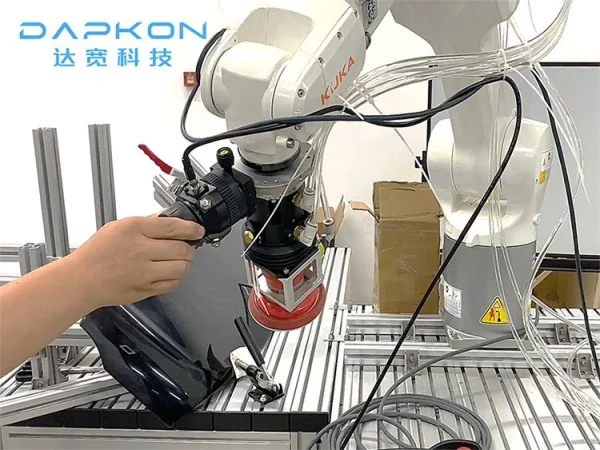With the continuous advancement of automation technology, robots are increasingly used in industrial manufacturing. Especially in the field of precision machining and surface treatment, such as polishing, flexible force-controlled robots have become an ideal solution due to their high flexibility and precision. This article will explore how to use flexible force-controlled robots for polishing operations, as well as the advantages and application prospects of this technology.
A flexible force-controlled robot is a robot system that can adjust its own force output when interacting with the environment. This robot is usually equipped with advanced sensors and control systems that can monitor and adjust the force applied to the workpiece in real-time to ensure that the workpiece is not damaged while performing tasks and that efficient operations are maintained.
1. Application of flexible force-controlled robots in polishing operations
Polishing operations are a job that requires highly precise control. Traditional manual polishing is prone to unevenness and inconsistency. Flexible force-controlled robots can achieve precise control of polishing force and speed through precise force control, thereby improving the quality and efficiency of polishing. The application of flexible force-controlled robots in polishing operations mainly includes the following aspects:
Adaptive polishing: Flexible robots can automatically adjust the polishing force and speed according to different workpiece shapes and material properties, thereby achieving adaptive polishing of different workpieces. This adaptability can greatly improve the effect and consistency of polishing.
High-precision polishing: Flexible robots have highly precise force control capabilities, which can achieve fine-tuning of the polishing force, thereby achieving high-precision polishing of the workpiece surface. This high-precision polishing can improve the surface quality and finish of the workpiece.
High-efficiency polishing: Flexible robots can optimize the polishing speed through precise force control and adaptability, thereby improving the efficiency of polishing. Compared with traditional manual polishing, flexible robots can greatly shorten the polishing time and improve production efficiency.
Aerospace field: In aerospace manufacturing, the surface quality of parts directly affects the performance and life of the aircraft. Flexible force-controlled robots can be used for precision polishing of key components such as aircraft engine blades.
Automobile manufacturing: The automotive industry has strict requirements on the surface finish of parts, and flexible force-controlled robots can be used for polishing body panels, wheels, and other parts.
Electronic products: The shells of electronic products such as smartphones and tablets require high-gloss surface treatment, and flexible force-controlled robots can achieve fine and consistent polishing effects.
Medical devices: Medical devices such as surgical knives and implants have extremely high requirements for surface finish and sterile conditions. Flexible force-controlled robots can complete high-quality polishing while ensuring cleanliness.

2. Advantages of flexible force-controlled robot polishing operations
Precise control: Flexible force-controlled robots can accurately control the polishing force according to the preset program to ensure that the depth and range of each polishing are consistent, thereby improving product quality.
Improve efficiency: Compared with manual polishing, robots can work continuously without rest, significantly improving production efficiency.
Reducing labor costs: The use of robots can reduce dependence on highly skilled operators and reduce long-term labor costs.
Improve working environment: Robots can work in harsh or dangerous environments to protect the safety of operators.
With the continuous advancement of technology, the application of flexible force-controlled robots in polishing operations will become more and more extensive. In the future, flexible robots will be more intelligent and can achieve more refined polishing effects through learning and optimization algorithms.
As a professional flexible force-controlled robot company, we are committed to providing innovative solutions to meet customer needs in various fields. Our team has rich experience and expertise to design and manufacture highly flexible and precisely controlled robot systems.
www.dapkon.ai
Shanghai Dapkon Technology Co., Ltd.

More Stories
How CNC Aluminum Machining Supports High-Performance Industrial Applications
How Long Do LiFePO4 Batteries Really Last? Cycle Life Explained
Mesima Mushroom Powder Extract